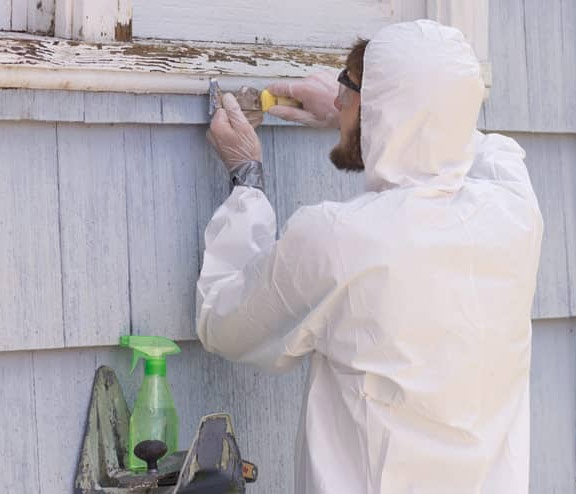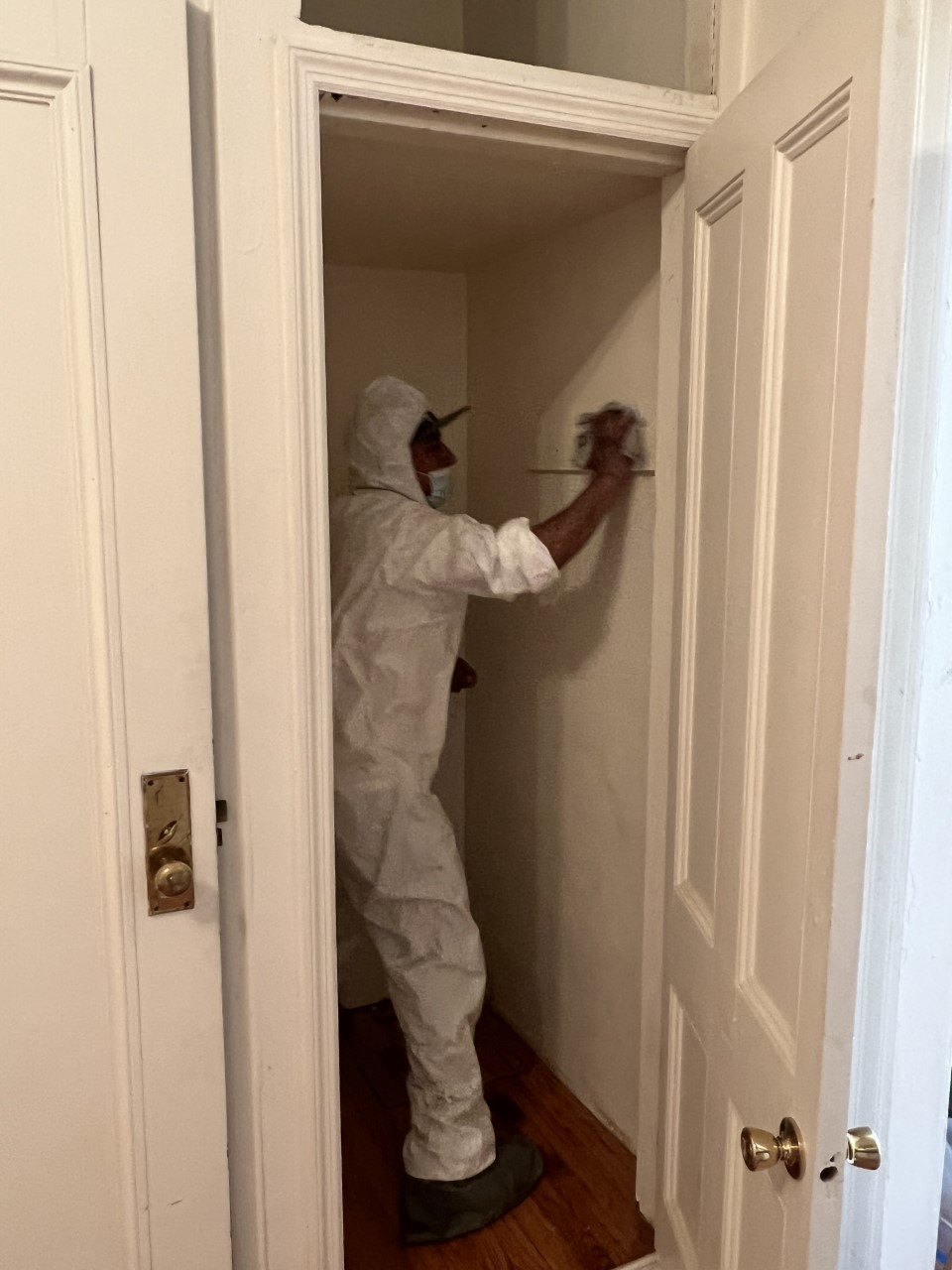Lead Removal Contractors-- Seasoned Experts for Lead Abatement
Wiki Article
Finest Practices for Making Certain Safe and Thorough Lead Offense Abatement
Addressing lead violation reduction requires a multi-faceted strategy to make sure both safety and conformity. It's the final clearance process, involving thorough inspections and research laboratory screening, that absolutely verifies a lead-free setting, making sure lasting safety. How do these practices adjoin to guarantee thorough lead reduction?
Preliminary Analysis
Conducting an initial evaluation is a vital very first step in lead violation reduction. This stage incorporates a thorough examination of the residential property to determine the existence, extent, and specific areas of lead-based dangers. Certified specialists, such as certified lead assessors or run the risk of assessors, must carry out an extensive website evaluation, making use of tools like X-ray fluorescence (XRF) analyzers to precisely detect and gauge lead focus in paint, dust, dirt, and water.The assessment needs to likewise consist of an evaluation of the building's background, previous records, and any issues or health problems reported by residents - Lead Removal Contractors. Documenting the searchings for thoroughly is necessary, as these records form the basis for creating an effective reduction strategy. A thorough evaluation also entails tasting and research laboratory analysis, which are essential to confirm the existence of lead and guide succeeding activities
Moreover, it is vital to interact the outcomes transparently to all stakeholders, including homeowner, renters, and governing authorities. By making certain that the preliminary assessment is carried out with precision and roughness, specialists can lay a solid foundation for a targeted and reliable lead abatement process, eventually protecting public health and wellness and making certain compliance with regulatory criteria.
Proper Containment
Proper containment is essential to stop the spread of lead pollutants throughout reduction tasks. Efficiently handling containment reduces the risk of lead dust and debris moving to non-work areas, consequently safeguarding both the environment and people outside the instant job zone. To accomplish correct control, an airtight barrier of plastic sheeting need to be developed around the job area, ensuring all seams and edges are safely sealed. Lead Removal Contractors. This barrier needs to expand from floor to ceiling and be taped to stop any leaks.
Normal assessments of the control location are required to inspect for violations or weaknesses in the barrier. Any kind of identified concerns should be promptly dealt with to preserve the stability of the control. By adhering to these methods, abatement jobs can efficiently manage lead contamination and mitigate affiliated health dangers.
Worker Defense
Guaranteeing worker security is paramount during lead abatement projects to stop occupational direct exposure to dangerous lead particles. Vital actions consist of using individual safety devices (PPE) such as respirators, gloves, and full-body fits especially designed to block lead dust and fumes. Workers ought to undertake detailed training on the correct usage and maintenance of PPE, including healthy testing for respirators to ensure optimum efficiency.Engineering controls, such as local exhaust ventilation systems, are vital in lessening airborne lead concentrations in the work environment. Management controls must additionally be executed, including limiting the duration of exposure and revolving workers to minimize specific direct exposure times. Routine medical security and biological tracking are crucial for very early discovery of lead absorption, allowing timely intervention and therapy.
Additionally, developing a decontamination method is essential. Workers must adhere to strict decontamination treatments before breaks and at the end of their change to avoid lead dust from being brought outside the workplace. This consists of detailed hand and face cleaning with lead-specific cleansing agents and transforming out of infected apparel.
Thorough Cleaning
Keeping a risk-free job atmosphere expands past worker protection and includes careful clean-up to guarantee lead particles are thoroughly removed from the site. The procedure of meticulous cleaning is important in stopping the recontamination of the moderated area and safeguarding both existing and future passengers.To accomplish a thorough clean-up, all job locations need to be methodically sanitized. This includes using specialized HEPA (High-Efficiency Particulate Air) vacuum and wet-wiping techniques to catch and eliminate fine lead dust that might have cleared up on surfaces. It is important to clean all horizontal surfaces, including floors, home window sills, and countertops, along with vertical surfaces that might have entraped lead particles.
Workers need to wear ideal personal safety tools (PPE) during clean-up to prevent exposure to residual lead dirt. Made use of cleansing materials such as wipes, sponges, and mop heads ought to be dealt with according Lead Paint Removal Service to contaminated materials disposal regulations.

Final Clearance
Final clearance is the essential wrapping up phase of lead abatement that determines whether the website is risk-free for reoccupation. This important step includes extensive examination and screening to validate that all lead dangers have actually been efficiently removed. The process begins with an aesthetic assessment by a licensed lead-based paint inspector or danger assessor to make certain no visible dirt or particles stays. This is followed by accumulating dust clean examples from different surface areas, consisting of floors, windowsills, and other horizontal surfaces. Lead Removal Contractors.
Last clearance screening not only secures future occupants but likewise guarantees compliance with regional, state, and federal policies. Additionally, it functions as a documented validation of the abatement service provider's adherence to market best methods. Ensuring a detailed and successful last clearance is important in guarding public wellness and promoting count on the reduction process.
Conclusion
Making certain risk-free and comprehensive lead infraction abatement demands a complex approach incorporating first evaluations with innovative detection methods, reliable control approaches, rigid worker security procedures, and thorough cleanup procedures. The final clearance stage, featuring comprehensive evaluations and research laboratory testing, is vital to confirm conformity with EPA requirements. Adherence to these best techniques ensures a safe setting for occupants, mitigates health and wellness threats, and maintains regulatory demands, consequently advertising public health and wellness and security in lead-affected areas.Report this wiki page